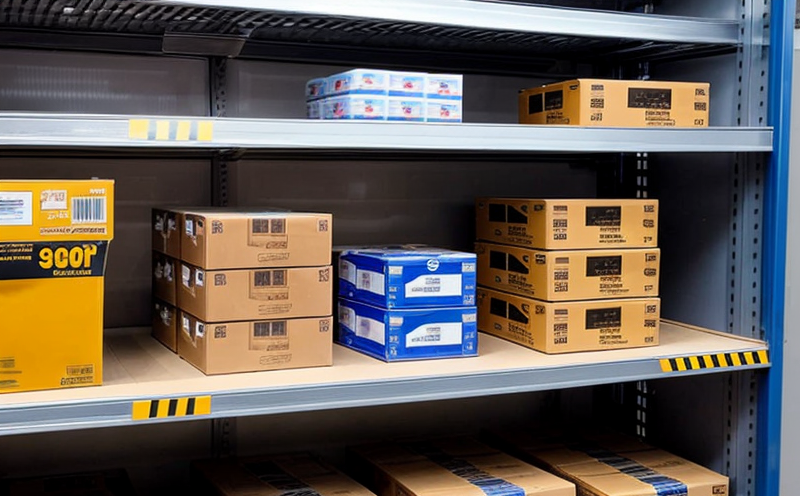ASTM D882 Tensile Testing of Packaging Films
The ASTM D882 standard is widely used in the medical device testing sector for evaluating the tensile properties of packaging films. This test method provides a standardized approach to measuring the strength and elongation characteristics of materials like polyethylene (PE), polypropylene (PP), and other thermoplastics commonly employed in medical device packaging.
The primary purpose of ASTM D882 is to ensure that the packaging material can withstand the stresses encountered during manufacturing, shipping, and storage without compromising the integrity or sterility of the sealed package. The tensile test measures how much force a sample can exert before it breaks, along with the percentage elongation at break.
Before conducting ASTM D882 testing, proper specimen preparation is crucial. The specimens should be cut from the center of the film roll to minimize edge effects and ensure that any defects are not concentrated in the test area. Standardized dimensions (width x length) must also be followed for accurate results.
The tensile testing machine typically used for this procedure includes a load cell, grips, and a crosshead speed controller. The specimen is clamped between the grips of the machine, which then applies controlled tension until failure occurs. Data recorded during the test include peak force, maximum elongation, stress at yield, modulus, and other relevant parameters.
The results are compared against acceptance criteria specified in ASTM D882. Compliance with these standards is essential for ensuring that the packaging meets regulatory requirements and performs reliably under real-world conditions. Non-compliance can lead to compromised product integrity and potential recalls or legal issues.
For quality managers, compliance officers, R&D engineers, and procurement teams working within the medical device sector, understanding ASTM D882 testing is critical for maintaining high-quality standards in packaging design and manufacturing processes. By adhering to this standard, organizations can ensure that their packaging films are robust enough to protect sensitive medical devices throughout distribution.
Benefits
The benefits of conducting ASTM D882 tensile testing extend beyond mere compliance; they encompass improved product quality and increased customer satisfaction. Here’s how:
Enhanced reliability: Ensures that the packaging film will not fail during transit, thereby protecting the integrity of medical devices.
Increased shelf life: Stronger packaging can help maintain sterility longer by preventing breaches in the package seal.
Reduced waste: Properly designed and tested packaging minimizes material usage, reducing costs while promoting sustainability.
Improved regulatory compliance: Meeting ASTM D882 standards helps avoid non-compliance penalties and enhances brand reputation.
These benefits contribute significantly to the overall efficiency and success of medical device manufacturers in ensuring safe and effective product delivery to healthcare providers.
Industry Applications
| Application | Description |
|---|---|
| Sterile Barrier Packaging | Ensures that medical devices remain sterile during transport and storage. |
| Transport Packaging | Protects the package from external environmental factors such as moisture, impact, and heat. |
| Storage Packaging | Maintains product integrity over extended periods by preventing contamination or degradation. |
| Clinical Packaging | Provides secure containment for medical devices during use in hospitals and clinics. |
| Distribution Packaging | Aids in efficient handling, stacking, and delivery of products to end-users. |
The results from ASTM D882 tensile testing are instrumental for selecting appropriate packaging films that meet the specific needs of each application. This ensures that medical devices arrive at their intended destination in optimal condition, thereby enhancing patient safety and satisfaction.
Environmental and Sustainability Contributions
Reduction in material waste through optimized design and testing processes.
Promotion of sustainable practices by ensuring packaging integrity without unnecessary overuse of materials.
Enhanced resource efficiency, as compliant packaging helps maintain product quality with minimal environmental impact.
The ASTM D882 standard plays a pivotal role in fostering environmentally responsible practices within the medical device industry. By prioritizing sustainable packaging solutions, manufacturers can contribute positively to global efforts towards reducing waste and promoting recycling initiatives.





